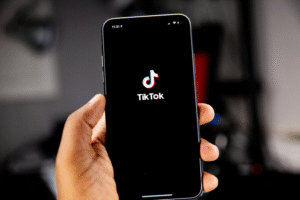Josh Hawley and Richard Blumenthal, two U.S. senators, have put more pressure on Meta Platforms. They want federal regulators to look into whether Facebook and Instagram have let scam-driven ads thrive while making money from them. After a Reuters investigation found that Meta may have made a lot of money from ads for fake products and schemes that are already banned on its platforms, they are asking for formal scrutiny. Many people have been asking for years how much responsibility a tech giant should have when harmful content becomes a profitable business. This is because digital advertising has grown so quickly.
The two senators were clear about their worries in their letter to the Federal Trade Commission and the Securities and Exchange Commission. They said that “the FTC and SEC should immediately open investigations and, if the reporting is accurate, pursue vigourous enforcement action where appropriate” to make sure that Meta gives back any money made from such ads, pays fines, and stops running the content. The tone of their message showed both frustration and urgency, suggesting that lawmakers think they have been bringing up the same issues for too long without seeing any real progress.
Their requests come after a Reuters article that showed internal Meta documents from late 2024. The papers say that the company thought that almost 10% of its yearly revenue—about $16 billion—might come from ads for scams or other illegal things at one point. It was also said that Meta made about three and a half billion dollars every six months from ads that were classified internally as “higher risk” because they often involved fraud. One document even pointed out that some of Meta’s anti-fraud rules were not being followed all the time, even though regulators and some of Meta’s own employees were worried that a lot of these ads “violated the spirit” of the company’s policies.
These results brought back up old debates about how much Meta really spends to make its platforms cleaner. The company talks a lot about its safety systems and machine-learning tools that are supposed to find fraud, but lawmakers and consumer advocates have said many times that they aren’t sure how well those tools work. For a lot of regular people, scam ads are just a normal part of using social media. Fraudulent promotions can be hard to spot because they often blend in with the digital landscape. They can range from fake investment opportunities to fake government agencies.
Meta strongly disagreed with the senators’ letter. Andy Stone, a spokesperson for the company, said that the Hawley-Blumenthal document “makes claims that are wrong and exaggerated.” He also repeated what the company had said before: “We aggressively fight fraud and scams because people on our platforms don’t want this content, legitimate advertisers don’t want it, and we don’t want it either.” Meta also said that over the past eighteen months, it had cut down on user reports of scams by fifty-eight percent. Critics say that even though the number of user reports has gone down, this doesn’t mean that the problem has been mostly solved. Some people think that users may not be reporting scams as often anymore because they are tired of them or are used to them, not because the ads are gone.
The senators made it clear that they don’t believe Meta’s own reports of progress. By pointing out Meta’s own public advertising library, they showed how easy it was to find ads that were still widely seen that were fake or questionable. They said, “Even a quick look at Meta’s Ad Library at the time of this letter shows clearly identifiable ads for illegal gambling, payment scams, crypto scams, AI deepfake sex services, and fake offers of federal benefits.” These examples show not only how big the problem is, but also how hard it is for regulators to keep up with the ever-more-complex ways that scammers are using the internet.
Policymakers are worried about this situation because Meta is so big and powerful. With billions of users on its platforms, harmful content that gets through the cracks can reach victims in ways that have never been possible before. The senators talked about previous reports that said Meta thought its platforms were involved in about a third of all scams in the US. When you add in the FTC data that says Americans lost more than $158 billion to scams last year, it’s harder to ignore the possible link between Meta’s ad ecosystem and widespread financial harm.
As someone who has seen digital advertising change over the years, it’s interesting to see how closely profit and risk can coexist in this field. Online ads are powerful tools for businesses and creators because they are fast, tailored to each user, and can reach people all over the world. But those same traits draw in bad people who know that a well-planned scam can make a lot of money before a platform or regulator even knows about it. Platforms like Meta have amazing technical capabilities, but even the best automated systems have a hard time finding scams that change every day, look like real brands, or use AI-generated images and language to make them look real.
Hawley and Blumenthal, two lawmakers, seem to think that Meta could be doing a lot more, especially since there are financial incentives involved. When billions of dollars are at stake in advertising volume, stricter enforcement may mean less money coming in. Some experts have long thought that this tension, whether on purpose or not, slows down the progress of platform safety. The main question for regulators is whether companies that make money from ads should be responsible for not only taking down harmful content but also stopping it from making money in the first place.
Meta, on the other hand, still says that clean and trustworthy ad spaces are much better for it than short-term gains from fake content. The business often talks about how much it spends on AI and human moderation teams. Still, the fact that these scams keep happening makes me wonder if those steps are enough for platforms that work on such a large scale.
Federal regulators are now in charge of the conversation. If the FTC or SEC decides to look into something, the results could mean that digital advertising platforms will have to be more responsible in the future. It could also influence how other tech companies manage illicit ad activity, reshape corporate policies, and reinforce expectations around transparency and responsibility. At the same time, any regulatory action will need to balance enforcement with practical limitations, knowing that even the most sophisticated systems cannot catch every scam instantly.












